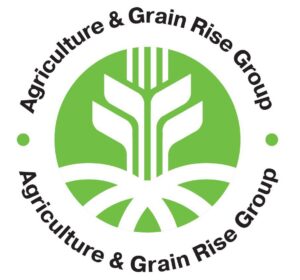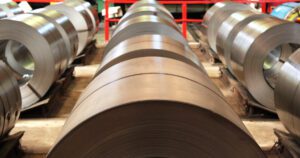
Sabotage by Russian inspectors in the Joint Coordination Center (JCC) of inspections of vessels bound for the Ukrainian Black Sea ports leads to low efficiency of their inspection – about 70 grain carriers piled up for a week to enter the “grain” corridor, and 30 – to leave.
According to the broker company Spike Brokers (Kiev) in Telegram-channel, grain traders are forced to lay more and more costs for demurrage of ships (up to 30 days) in the price of agricultural products, which “kills” the benefits for agricultural producers. Because of this, farmers are actively exporting their goods by land, strengthening trade relations with end consumers in Europe.
According to a brokerage company, for the past week, it has made deals for December-February delivery of feed wheat from Ukraine to Poland for $237/ton, rapeseed (non-GMO) to Germany – €595/ton, soybeans (GMO) to Ukrainian deep-sea ports – $415/ton. No data on sunflower sales have been made public this week.
She specified that domestic corn prices have stabilized at $205-230, depending on the place of delivery – in the port or to the land border crossings. Exchange quotations for wheat this week are in the nature of an “inversion” (a reverse market where spot is more expensive than contracts for future months). Recent buyer indications for the past week are DAP Poland (border) $210-220, DAP Turkey (port) $260-270, DAP Romania (port) $255-265.
“The proximity of the holiday month creates some constraints on the efficiency of cargo handling in Europe. Most buyers in Europe do not want to receive shipments by truck/rail between December 20 and January 5. In the direction of ports, buyer demand is expected to decline significantly until vessel throughput efficiency improves,” Spike Brokers stressed in a statement.
In turn, with low selling prices of wheat in Ukraine and the high cost of its logistics, domestic producers are suffering significant losses, which significantly constrains its supply. The latest indications of buyers: DAP Poland (border) – $230-245, DAP Hungary (border) – $230-242, DAP Ukraine (Danube ports) – $240-245.
According to the trader, the purchasing prices of oil extraction plants in Ukraine adjusted from $450 to $350 excluding VAT per ton of sunflower seed delivered to the plant: the saturation of demand in Ukraine occurs against the background of the fall in vegetable oil prices to $ 200 per ton. Thus, while oil prices on foreign markets will remain stable, there will be an increase in the supply of sunflower for export.
The latest indications of sunflower seed buyers: DAP Bulgaria (center) – $540-560, DAP Romania (center) – $500-530, DAP Hungary (center) – $540-555.
In addition, the saturation of the EU market with rapeseed from Ukraine and Eastern European countries does not give any chance for price strengthening at the moment. Latest buyer indications: DAP Germany (east) – €550-560, DAP Hungary (center) – €540-550.
“The soybean market remains at last week’s levels. Producers remain with good soybean balances for sale,” the brokerage clarified.
The latest soybean buyer indications for the week: non-GMO DAP Italy – €545-550, GMO DAP Italy (south) – €545-550.
A representative of the trading department of A.G.R. Agroholding. Group in a survey by Interfax-Ukraine agency noted that since the beginning of Russian military aggression, the logistical leverage for agricultural exports from Ukraine has increased, freight prices have risen, energy and fuel prices have risen. As a result, the group is forced to spend about $200 per ton of exports, a huge amount of money compared to the prewar $45-50 per ton.
“With the start of the war, we changed our crop rotation and switched to oilseed crops as much as possible – that’s more than 60% of our crops this year. Corn is a comfortable crop, but energy-intensive, and with the price of energy, gas, it’s just not profitable to work with. As a result, we have reduced the volume of its sowing and to a greater extent switched to oilseeds, thereby reducing the burden on the railway and road transport and combine maintenance costs, “- said the interlocutor of the agency.

One of the world giants in the food market, Dutch-British company Unilever is going to produce next year a dairy ice cream, made from cow’s milk, grown in a laboratory.
Next summer, supermarket shelves may be stocked with ice cream “made from cow’s milk without cows. It will be made from milk protein obtained by fermentation, which uses yeast and fungi, among other ingredients, to grow it in vats.
However, natural cow’s milk contains many types of protein, so producing it in the lab with a satisfactory result that allows the product to be used in the same way as “classic” milk is no easy task.
A number of startups have already submitted several prototypes of “lab milk” for consideration by Unilever. The company hopes to commercialize next year a new ice cream under one of its world-famous brands – Ben & Jerry’s, Miko, Magnum, but has not yet specified which one it will choose for the debut.
Unilever explains its idea as the aim to produce the product with less greenhouse gas emissions, particularly methane, which is inevitable in dairy farming, subject to the profitability of the new technology.
However, Unilever is not the first company in the food market, trying to introduce “milk without a cow. Last year, American Starbucks already tried to sell products based on “lab milk” produced by the startup Perfect Day in its cafes in the Seattle area.

Ukraine ranks seventh in the world in terms of Internet traffic.
“Ukraine is actively developing traffic exchange points. For four years now, the country has ranked seventh and is ahead of many other states that are much larger than Ukraine,” Bill Woodcock, Executive Director of Packet Clearing House (PCH), said at the UADOM conference in Kyiv on Thursday .
He also noted that PCH has been cooperating with the UA domain registry by Hostmaster since 2004.
“During this time, best security practices have been introduced in the Ukrainian domain, and now Ukraine is among the 25 most developed countries in the world that use the most advanced security technologies,” the PCH executive director emphasized.
Packet Clearing House is an international non-profit organization responsible for providing operational support and security for critical Internet infrastructure, including Internet data exchange points and the core of the Domain Name System.
The “.UA” domain was delegated by the international organization IANA (later renamed ICANN) to Dmitry Kokhmanyuk and Igor Sviridov in 1992 in the interests of the entire Ukrainian Internet community. For a long time, the administration and development of the domain on a voluntary basis was carried out by specialists who united the Ukrainian Network Coordination Group (UA NCG) and created in 2001 a specialized enterprise Hostmaster LLC, which currently performs the functions of an administrator.

Zaporizhstal steelmaker Zaporizhstal in January-November this year decreased the output of rolled steel by 58.5% compared to the same period last year to 1 million 247.2 thousand tons.
According to the company’s information on Thursday, steel production fell by 60% to 1 million 420.5 tons over that period, and iron production decreased by 53.1% to 1 million 867.8 thousand tons.
In November this year, the company produced 143.9 thousand tons of iron, 85.8 thousand tons of steel, shipped 74.4 thousand tons of rolled steel, while in the previous month – 157 thousand tons of iron, 121.8 thousand tons of steel, shipped 101.3 thousand tons of rolled steel.
“The decline in production levels compared to the same period last year is due to the shortage of raw materials and logistical problems caused by full-scale military action in Ukraine. In addition, due to the ongoing missile attacks on the energy infrastructure and, as a consequence, the resulting shortage of capacity in the energy system, the plant reduced production, thus reducing the consumption of purchased electricity,” the press release explains.
As it was reported, in 2021 “Zaporizhstal” kept the output of rolled steel at the level of 2020 – 3.204 million tons, reduced steel production by 0.1% – to 3 million 778.25 thousand tons and increased the iron – by 0.1%, to 4 million 473.5 thousand tons.
“Zaporizhstal is one of the biggest industrial enterprises in Ukraine, which products are in great demand among domestic and foreign consumers. The plant specializes in high-quality carbon and low-alloy steel coils, hot-rolled plates, cold-rolled sheets, cold-rolled coils, as well as steel straps, tin plates, formed sections.
Main consumers are producers of welded pipes, enterprises of automotive, transport, agricultural engineering, producers of household appliances.
“Zaporizhstal is in the process of integration into Metinvest Group the main shareholders of which are CJSC “System Capital Management” (71.24%) and Smart Holding group of companies (23.76%).
Metinvest Holding LLC is the management company of Metinvest Group.

The group of companies, A.G.R. Group, of businessman Misak Khidiryan, with the start of a full-scale Russian invasion, reoriented logistics routes from Ukrainian seaports to the EU market through road and rail transport, as well as the river ports of Reni and Izmail.
As a representative of the grain trading department told Interfax-Ukraine, the company would continue to export part of its agricultural products through land border crossings with the EU and along the Danube River even after the occupied territories are liberated from Russian troops and Ukraine resumes full-fledged trade in the Black Sea.
According to him, after the start of the war, A.G.R. Group began searching for elevator capacities in the west of Ukraine and transporting crop stocks there from the central regions of the country. Later, A.G.R. Group established road and rail logistics channels for the selling of agricultural products in the EU, and also agreed to cooperate with a European trading company with a fairly strong infrastructure throughout Europe and begun to supply agricultural products to it.
“In addition, we agreed that we would work together to load their volumes and gave guarantees that after our victory and the liberation of the occupied territories, we will maintain our partnerships, even when ports open and maritime logistics again become a priority. Perhaps even consider with the board purchase of new clusters in western Ukraine for a more convenient partnership,” the representative of the holding told the agency.
According to him, at the moment, deep-water seaports are not available to the holding for export, so it uses road and rail transport, as well as the ports of Reni and Izmail. However, such logistics is much more expensive than maritime exports, and is also associated with a number of difficulties, such as the inability to leave Ukraine for drivers – its citizens, or long queues of ships in ports.
However, A.G.R. Group, in addition to the European direction, stepped up its activities in several countries of the Middle East – in Egypt and Turkey, where the company opened its representative offices.
“Our offices are operating there and domestic sales are running at maximum, as we need additional margin due to high logistics costs. We must clearly understand that the logistics leverage has increased, freight prices have increased, energy and fuel prices have risen, as a result of which we spend about $200 per tonne of exports, $200 on our product is a lot of money, we used to spend $45-50 per tonne,” the source said.
In the agricultural holding A.G.R. Group includes 20 companies. The main direction of its activity is the trade in agricultural products, the cultivation and storage of grain crops, as well as animal husbandry.
A.G.R. Group cultivates land in Poltava, Kyiv, Chernihiv and Sumy regions. All grown products are sold on foreign markets.
The holding’s president and head of its supervisory board is businessman Misak Khidiryan.

Italy plans to introduce 26% tax on profit from cryptocurrencies. The government will charge tax if the profit exceeds 2 thousand euros.
Taxpayers have already received letters demanding to indicate the value of their crypto-assets as of January 1, 2023 in the declaration and pay a tax of 14%.